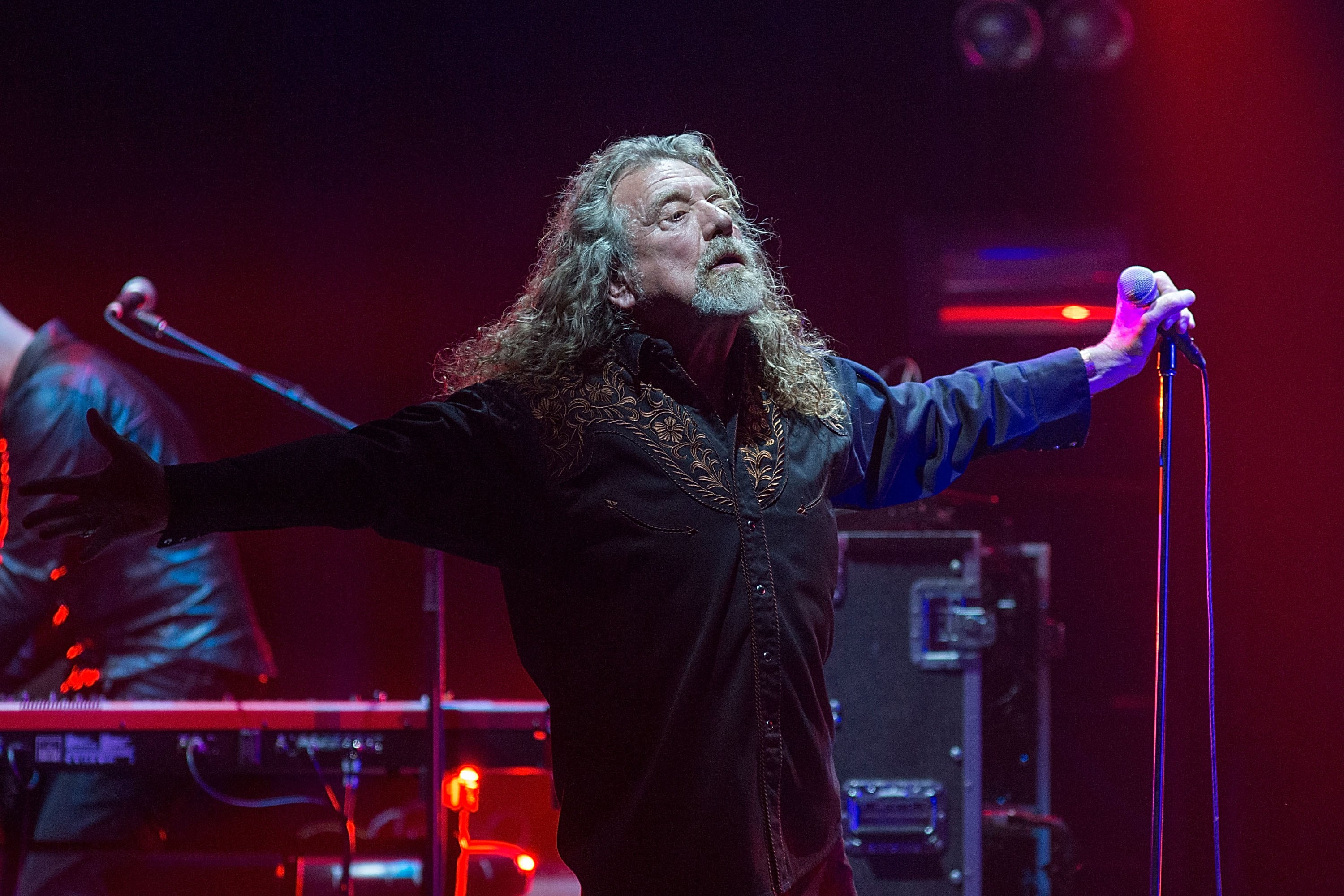
Led Zeppelin’s Robert Plant Said Elvis Presley’s Arrival in the U.K. Was His ‘Call to Arms’
Elvis Presley was a rock n’ roll pioneer in the 1950s. Artists like Chuck Berry and Little Richard introduced the genre to many audiences, but Elvis made the genre skyrocket in popularity. He was also a pivotal figure for the youth, as his rebellious spirit infected the hearts of young listeners. Led Zeppelin’s Robert Plant was young when he first heard Elvis Presley in the U.K., and he said his music was a “call to arms.”
Robert Plant said Elvis Presley’s arrival in the U.K. was an awakening for young people
While Elvis’ music seems relatively tame by today’s standards, he was considered controversial in the 1950s. Not only was rock n’ roll seen as a rebellious form of music, but Elvis also shook things up with his eccentric performing style, including suggestive hip swinging and rapid leg movement.
In an interview with Jools Holland, Plant said the BBC wasn’t nice to youth culture during those times. When he first heard Presley’s music, specifically “Hound Dog,” the Led Zeppelin lead singer said it was like an “opiate” that changed the trajectory of his life.
“The BBC wasn’t very kind to youth culture in those days, but every now and then on Two Way Family Favourites on a Sunday lunchtime, some servicemen would send messages back to Mom and Dad and request a song,” Plant shared. “And it was ‘Hound Dog’. Elvis. That was the kind of lock-in. It was an opiate. Something happened when I heard the sound of that record. It certainly made me put my stamp collection to one side for a bit.”
The older generation was still very conservative then and didn’t want the younger crowds exposed to anything too scandalous. Plant later said Elvis’s arrival in the U.K. was a “call to arms” for youth culture.
“The whole deal of Presley was that he was the original hepcat,” Plant told Charlie Rose in 2005. “And what we got on the radio in England, it cut through all the drizzle, and it really gave us something; everybody’s heads turned, and our parents, as you can imagine, it was the same thing in America, rejected it wholeheartedly. They saw something coming around the corner that they couldn’t understand… I think our call to arms.”
Plant said Presley opened the door for black musicians in the U.K.
Presley owed much of his passion for music and success to black artists who influenced his career. A few of his songs, like “Hound Dog”, were covers by black blues and R&B singers that he turned into popular rock-pop tracks. According to Robert Plant, Elvis Presley did open the doors for black artists in the U.K. as people became more interested in “black Americana.”
“I think there was a huge movement towards Black Americana in the British pop scene. I was just perhaps two or three years behind The Rolling Stones and The Pretty Things, and there was an amazing sort of… The impulse on the ground listening to Black rhythm and blues,” Plant told Rose. “In your cities, you had music from New Orleans, Philadelphia, Chicago; so many different cities had so much absolutely different music to offer us, and I never realized.”
“I was absolutely infatuated,” he continued. “Well, you know, there’s a kind of saccharine sweet thing about British pop music. It was somewhere between Johnnie Ray and Pat Boone. It was something that was happening, and with Presley mimicking the Black voice and bringing a little lift of Black music into the mainstream, that was the first, that was the sort of hors d’oeuvre, and then a little later on you’ve got all these Black American bands who started to permeate.”


